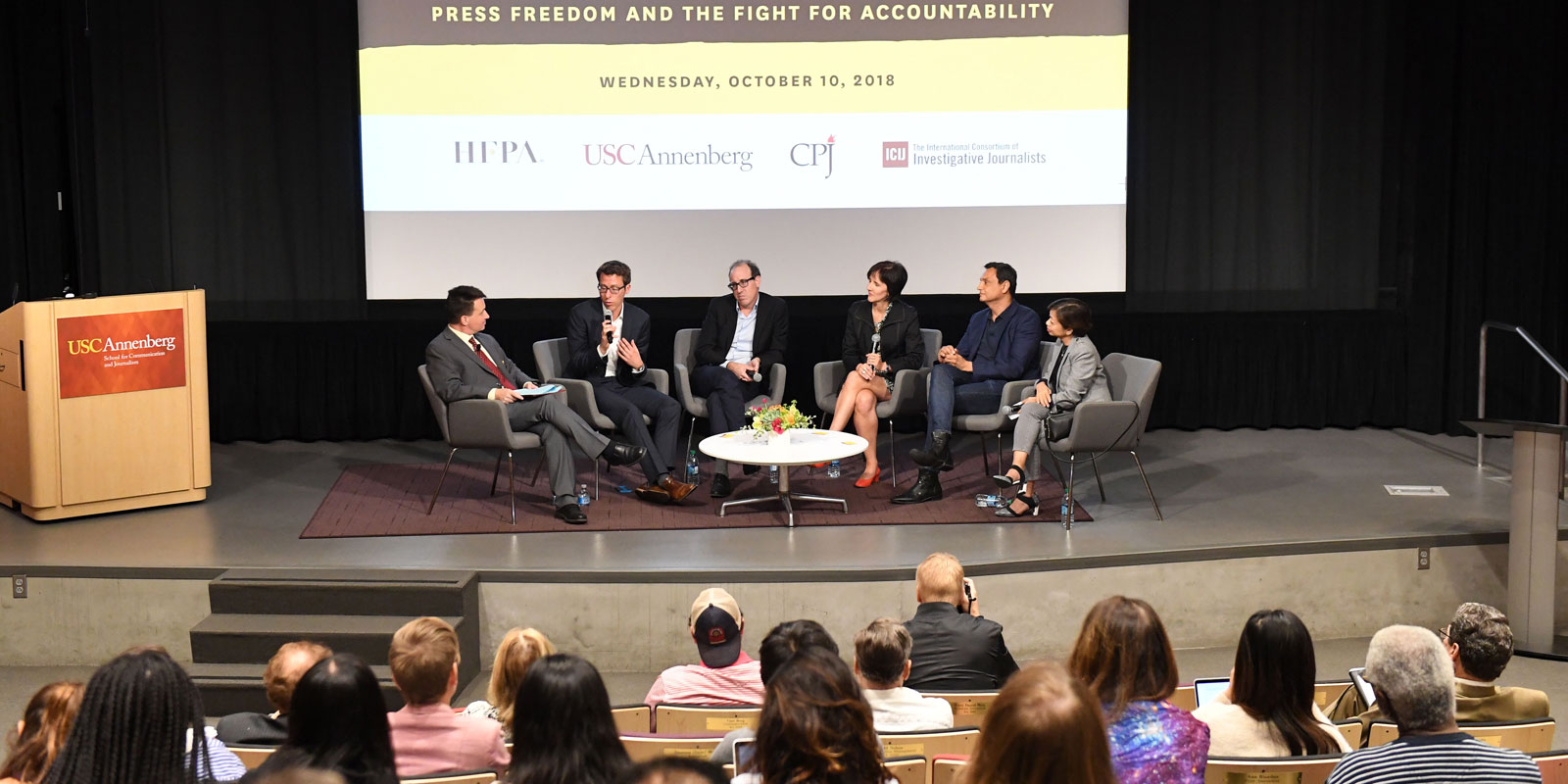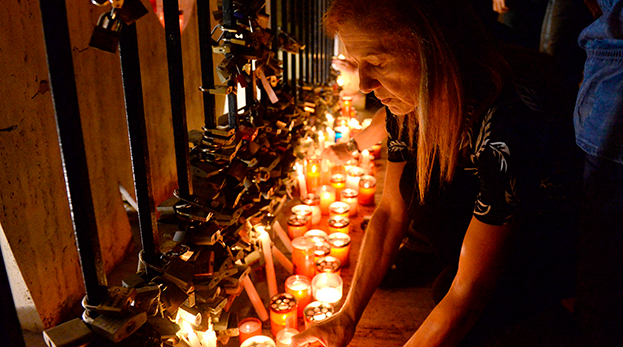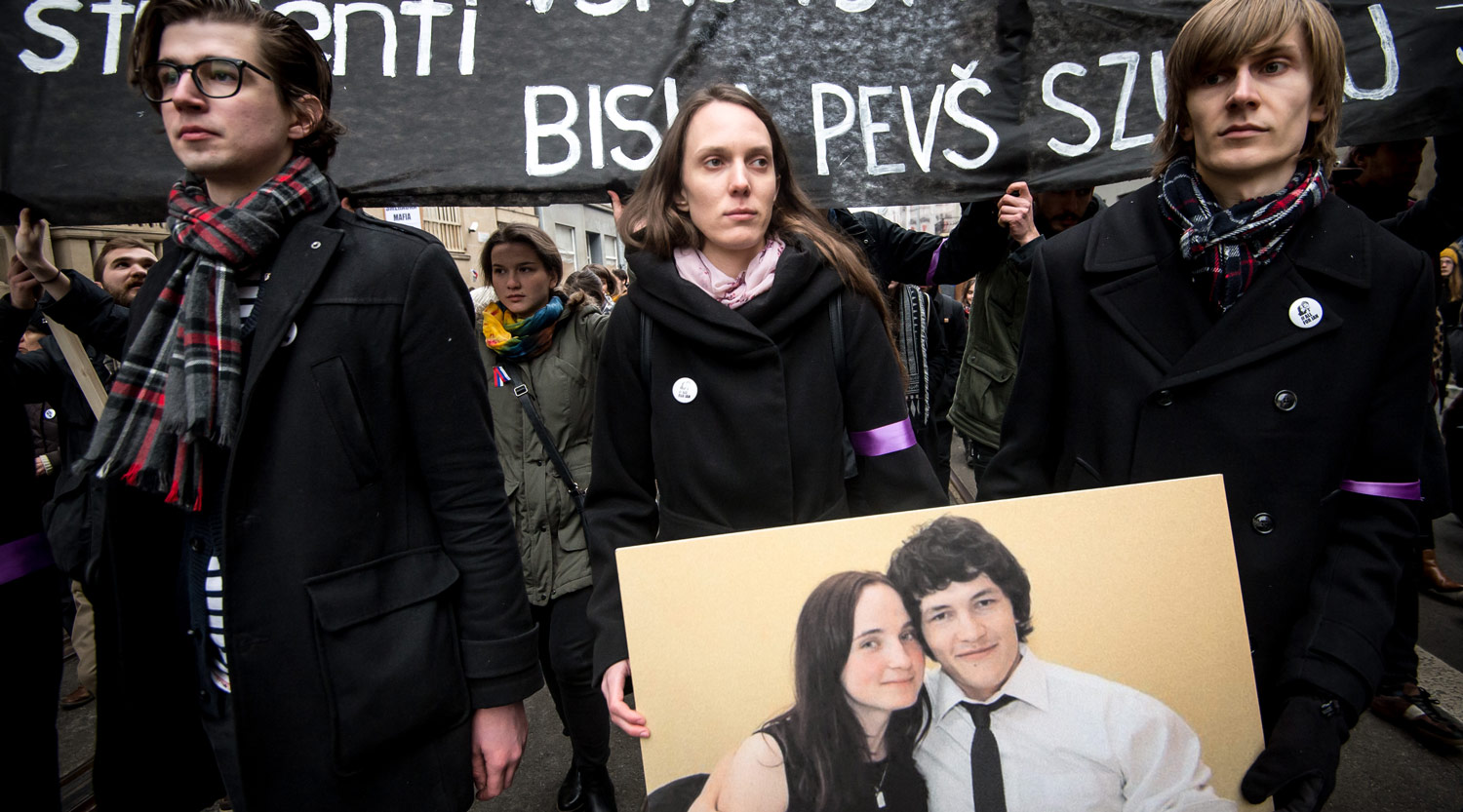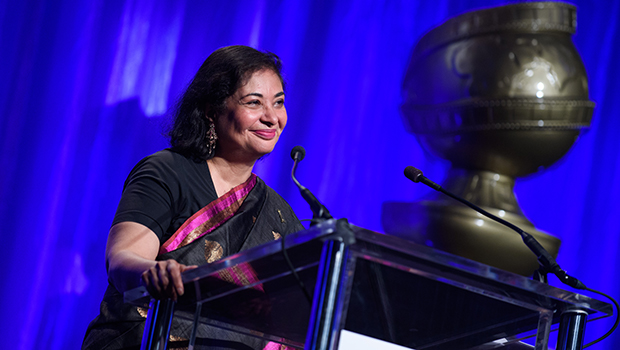How do you safeguard the truth when journalism — and journalists —are in the crosshairs of powerful forces that want to shut them down?
A panel that included International Consortium of Investigative Journalists deputy director Marina Walker Guevara and others took on that challenge on Oct. 10 in a wide-ranging discussion of “Safeguarding the truth: Press freedom and the fight for accountability” sponsored by the Hollywood Foreign Press Association and hosted by the Annenberg School for Communications and Journalism at the University of Southern California. Here are five key takeaways from the event:
1. The best reporting is often done in the most dangerous conditions
Panelist CNews foreign correspondent Ramzi Malouki, who is also a member of the HFPA, talked about how he developed a stable of contributors who were on the ground in Tunisia to help cover the Arab Spring after he was hauled in by police for questioning while on holidays in Tunisia.
They suspected Malouki, then based in France, was working rather than on holiday. The police let him go, but Malouki immediately alerted his newsroom in France, urging them not to send anyone to Tunisia who might trigger police suspicions that they were reporting. And then he went to work developing alternatives — individuals who were already in the middle of the conflict who would be willing to report on it.
All the time he was helping these people cover the unfolding events, he continued posting on social media as a vacationing visitor.
When he returned to Paris, he continued to build this network of citizen journalists to help his newsroom craft its coverage of the uprising.
“We created a cell within our news channel with all these bloggers, who were Skyping and sending footage of the plane of [Former Tunisian president] Ben Ali taking off. [We had] for the first time some kind of a collaboration with these new emergent journalists.”
Joel Simon, executive director of the Committee to Protect Journalists, and Sheila Coronel of the Columbia Graduate School of Journalism (and ICIJ board member) highlighted Rappler, a small Philippines news organization, known for its hard-hitting investigations into President Rodrigo Duterte’s administration, that has faced continued pressure and attempted censorship from the government.
When you are attacked by an autocratic government, they throw everything at you.
“They’ve been harassed in every possible way, it’s like an encyclopedia: online harassment, trolling, disinformation, physical threats, regulatory threats, lawsuits,” Coronel said. “When you are attacked by an autocratic government, they throw everything at you.”
2. Reporters need more protection as threats increase
“There are 267 journalists in prison around the world, that’s the highest number CPJ has ever recorded. There is a consistent framework for repression, emboldened by autocratic leaders,” said Simon, as he addressed the very real dangers faced by reporters.
Simon cited the alleged murder of Jamal Khashoggi, a Washington Post columnist and Saudi exile, and the jailing of two Reuters journalists covering the massacre of Rohingya Muslims in Myanmar as two high-profile cases that have caught the public’s attention.
The number of reporters jailed under “false news” charges has more than doubled since U.S. President Donald Trump was elected in 2016, according to Simon.
The regions of concern have also shifted in recent years. ICIJ member and Süddeutsche Zeitung reporter Bastian Obermayer said he was asked if he was afraid to release the Panama Papers:
“Back then I said, ‘I’m really concerned for the colleagues in Russia, in Africa and South America because there are many problems with press freedom but none in the European Union’ and I would’ve said the same sentence a year ago but then one colleague whom we’ve worked with before, Daphne Caruana Galizia was murdered in Malta and another colleague from the Panama Papers, Jan Kuciak was murdered in Slovakia and now another case in Bulgaria.
“This is a traumatic change in my life and how I see the world of journalism.”
3. The new model of collaborative journalism is here to stay
“The public good is the primary driver (of collaborations), not the proprietary good,” so can collaborative journalism help keep it afloat? was a question Annenberg School’s Gordon Stables, who was moderating the panel, posed.
There’s a strong commercial argument for working and publishing collaboratively, said Walker, who has managed several of ICIJ’s global investigations.
Although newsrooms enjoy increased audience, revenue and impact, she admitted: “We had to show them, it’s not only good for the story but good for their business.”
Obermayer, who worked on multiple ICIJ investigations before the Panama Papers, conceded he still had to work to convince his editors to share the Panama Papers leak because they feared losing the scoop.
Obermayer tried to reason with his superiors, telling them, “Sure, from the cake of attention, we will have a smaller piece but the whole cake will be much bigger.”
Columbia’s Coronel said the ‘new model’ had four distinguishing points:
“First, it’s network journalism, it’s flat, it’s horizontal it’s not vertical. The second difference is it’s collaborative, it’s not competitive. Thirdly, it’s truly global. There were foreign correspondents but nothing like true cross-border global journalism. And, fourth, the use of technology for secure communication and sharing massive amounts of data.”
4. The media should admit to its mistakes – and eat some humble pie
Panel members also noted the role the media itself has played in creating some of the distrust.
“We need to be a bit more humble,” said Walker. “Let’s not forget in the process of asserting ourselves at a time of attack, the things that we also did wrong.”
Media professionals have contributed to a fast-and-loose approach to the truth and are now paying for it, said Columbia’s Coronel. “Our audience is primed for [disinformation] partly because of the mistakes of the mainstream media and professional journalism.”
Simon argued that a combination of factors have led to the current situation: flawed journalism and those hoping to take advantage of the media’s weak areas.
“There are lots of flaws in the way the media has performed and there is a relation between that and public trust,” Simon said.
“But then there are also malevolent actors who are fanning the fires set by the media’s own performance to achieve a political objective.”
It’s an opportunity to do better work, more in depth, more collaborative (work)… and to be transparent about how we got the story.
Walker said the media has long been “arrogant” in its treatment of disenfranchised groups and that journalists need to change that.
“The people that feel invisible today, they feel like we don’t see them,” she said. “We probably didn’t see them, and we probably still don’t see them.”
5. Transparency will help regain public trust
“It’s an opportunity,” said Walker about the growing distrust of the media. “It’s an opportunity to do better work, more in depth, more collaborative (work)… and to be transparent about how we got the story.”
Revealing your methodology and making reporting materials available is a win-win for journalists facing a crisis of credibility.
“Here are the documents, come and examine them, look at them, do your own story,” she said.
But, it’s not so easy. Obermayer talked of his struggle to introduce more transparency at Süddeutsche Zeitung. “It’s very hard to convince editors that we have to show openness, because they are used to be being the gatekeeper,” Obermayer said.
Is this mentality a “historical commercial concern?” asked Stables, citing an Annenberg faculty member who would send Freedom of Information Act requests to government bodies in a bid to find out what competitors news organizations were investigating.
Obermayer said traditional resistance was likely based on fear.
“We don’t want to show how our sausage is made,” Obermayer said of the reporting process. “Often, that’s because there’s a problem with the sausage. I have many colleagues in Germany that work maybe more with the lawyers than they should.”



